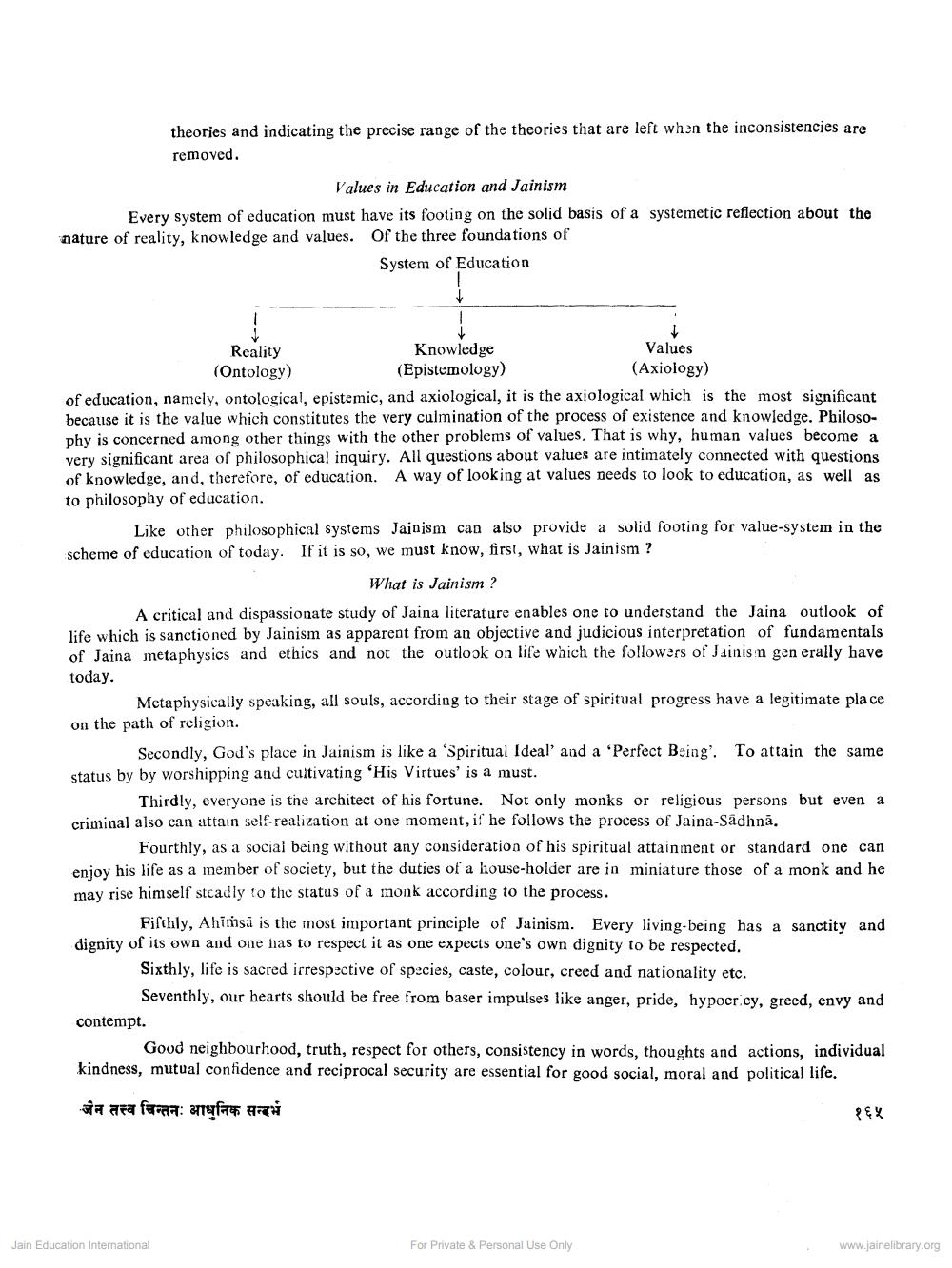________________
theories and indicating the precise range of the theories that are left when the inconsistencies are removed.
Values in Education and Jainism Every system of education must have its footing on the solid basis of a systemetic reflection about the nature of reality, knowledge and values. Of the three foundations of
System of Education
Reality Knowledge
Values (Ontology) (Epistemology)
(Axiology) of education, namely, ontological, epistemic, and axiological, it is the axiological which is the most significant because it is the value which constitutes the very culmination of the process of existence and knowledge. Philosophy is concerned among other things with the other problems of values. That is why, human values become a very significant area of philosophical inquiry. All questions about values are intimately connected with questions of knowledge, and, therefore, of education. A way of looking at values needs to look to education, as well as to philosophy of education.
Like other philosophical systems Jainism can also provide a solid footing for value-system in the scheme of education of today. If it is so, we must know, first, what is Jainism ?
What is Jainism ? A critical and dispassionate study of Jaina literature enables one to understand the Jaina outlook of life which is sanctioned by Jainism as apparent from an objective and judicious interpretation of fundamentals of Jaina metaphysics and ethics and not the outlook on life which the followers of Jainis in generally have today.
Metaphysically speaking, all souls, according to their stage of spiritual progress have a legitimate place on the path of religion.
Secondly, God's place in Jainism is like a 'Spiritual Ideal' and a 'Perfect Being'. To attain the same status by by worshipping and cultivating "His Virtues' is a must.
Thirdly, everyone is the architect of his fortune. Not only monks or religious persons but even a criminal also can attain self-realization at one moment, if he follows the process of Jaina-Sadhna.
Fourthly, as a social being without any consideration of his spiritual attainment or standard one can enjoy his life as a member of society, but the duties of a house-holder are in miniature those of a monk and he may rise himself stcadly to the status of a monk according to the process.
Fifthly. Ahimsi is the most important principle of Jainism. Every living-being has a sanctity and dignity of its own and one has to respect it as one expects one's own dignity to be respected.
Sixthly, life is sacred irrespective of species, caste, colour, creed and nationality etc.
Seventhly, our hearts should be free from baser impulses like anger, pride, hypocr.cy, greed, envy and contempt.
Good neighbourhood, truth, respect for others, consistency in words, thoughts and actions, individual kindness, mutual confidence and reciprocal security are essential for good social, moral and political life.
जैन तत्व चिन्तनः आधुनिक सन्दर्भ
Jain Education International
For Private & Personal Use Only
www.jainelibrary.org




